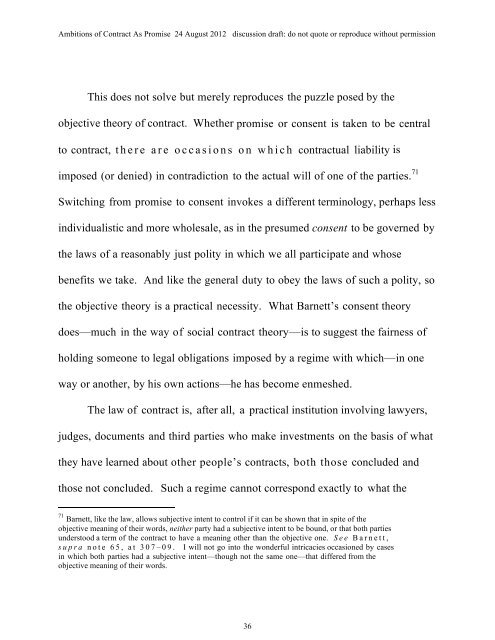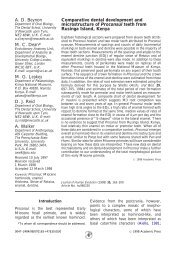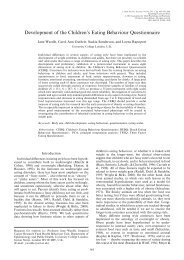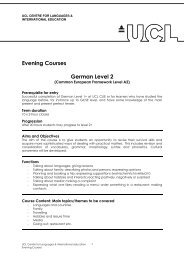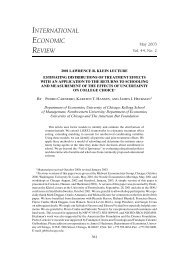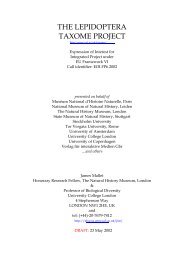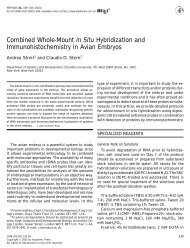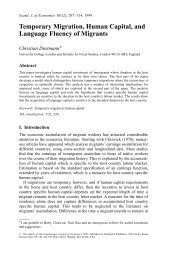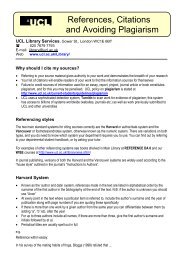The Ambitions of Contract as Promise Thirty Years On ... - UCL
The Ambitions of Contract as Promise Thirty Years On ... - UCL
The Ambitions of Contract as Promise Thirty Years On ... - UCL
Create successful ePaper yourself
Turn your PDF publications into a flip-book with our unique Google optimized e-Paper software.
<strong>Ambitions</strong> <strong>of</strong> <strong>Contract</strong> As <strong>Promise</strong> 24 August 2012 discussion draft: do not quote or reproduce without permission<br />
This does not solve but merely reproduces the puzzle posed by the<br />
objective theory <strong>of</strong> contract. Whether promise or consent is taken to be central<br />
to contract, there are occ<strong>as</strong>ions on which contractual liability is<br />
imposed (or denied) in contradiction to the actual will <strong>of</strong> one <strong>of</strong> the parties. 71<br />
Switching from promise to consent invokes a different terminology, perhaps less<br />
individualistic and more wholesale, <strong>as</strong> in the presumed consent to be governed by<br />
the laws <strong>of</strong> a re<strong>as</strong>onably just polity in which we all participate and whose<br />
benefits we take. And like the general duty to obey the laws <strong>of</strong> such a polity, so<br />
the objective theory is a practical necessity. What Barnett’s consent theory<br />
does—much in the way <strong>of</strong> social contract theory—is to suggest the fairness <strong>of</strong><br />
holding someone to legal obligations imposed by a regime with which—in one<br />
way or another, by his own actions—he h<strong>as</strong> become enmeshed.<br />
<strong>The</strong> law <strong>of</strong> contract is, after all, a practical institution involving lawyers,<br />
judges, documents and third parties who make investments on the b<strong>as</strong>is <strong>of</strong> what<br />
they have learned about other people’s contracts, both those concluded and<br />
those not concluded. Such a regime cannot correspond exactly to what the<br />
71 Barnett, like the law, allows subjective intent to control if it can be shown that in spite <strong>of</strong> the<br />
objective meaning <strong>of</strong> their words, neither party had a subjective intent to be bound, or that both parties<br />
understood a term <strong>of</strong> the contract to have a meaning other than the objective one. See Barnett,<br />
supra note 65, at 307– 09. I will not go into the wonderful intricacies occ<strong>as</strong>ioned by c<strong>as</strong>es<br />
in which both parties had a subjective intent—though not the same one—that differed from the<br />
objective meaning <strong>of</strong> their words.<br />
36


